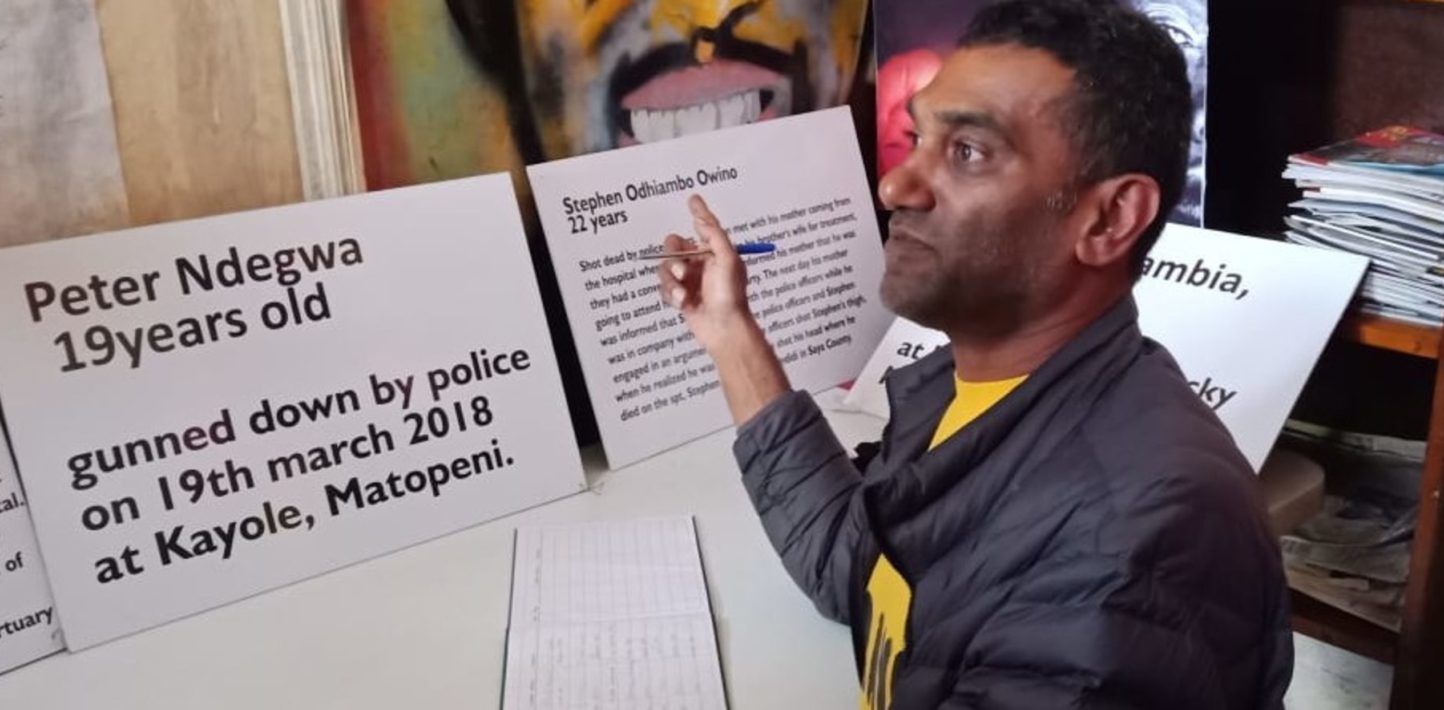On Wednesday 22 August, I joined our new Secretary General Kumi Naidoo on a visit to Mathare, one of the informal settlements in Kenya’s capital, Nairobi. We were hosted by the Mathare Social Justice Centre—an initiative set up by young people from the area to promote social justice.
One of the Centre’s members told me that their main strand of work is to promote social justice by engaging the community in documenting and campaigning against human rights violations.
The names of victims are displayed on boards and on walls as a stark reminder of the extent of the violations people have suffered at the hands of police who are meant to protect them.
I was left inspired by the great work the Centre is doing, but also deeply shocked by the number of extrajudicial executions and other unlawful killings by the police that they have documented. The names of some of the victims are displayed on boards and on the walls of their office as a stark reminder of the extent of the violations people from this neighborhood have suffered at the hands of police who are meant to protect them.
They told me the names represent just a small portion of the individuals who have been unlawfully killed by police. A report released by the Centre in May 2017 found that between 2016 and 2017 alone, police shot dead at least 57 individuals.
Imagine seeing the dead bodies of your two sons in one day!
Mother who lost two children on one day
I met Joyce (not her real name), a mother of two boys shot dead by police in Mathare on 9 August 2017, the day after last year’s general election. She is one of the many parents whose children were killed in the police crackdown against post-election protests.
“Imagine seeing the dead bodies of your two sons in one day,” she said as she kept staring at the names of her sons in despair.
It is not just the right to life that is being violated in this wave of unlawful killings. In many cases, other rights are also violated when the victims are forcibly disappeared or tortured before being killed.
While in Mathare, Amnesty International Secretary General Kumi Naidoo called on the Kenyan authorities to stop extrajudicial executions.
Both international and Kenyan law guarantee and demand protection of the right to life. Article 3 of the Universal Declaration of Human Rights guarantees the right to life, liberty and security of person.
The Constitution of Kenya provides for the protection of the freedom and security of individuals, including the right not to be deprived of their freedom arbitrarily or without just cause and due process. It also provides for the right not to be subjected to any form of violence, torture, and corporal punishment or treated or punished in a cruel, inhuman or degrading manner.
In December 2016, Amnesty International and others called on the Kenyan authorities to establish a judicial commission of inquiry to conduct a thorough, independent, impartial and effective investigation into allegations of enforced disappearances, extrajudicial executions and other violations but security forces continue these violations with complete impunity, and no meaningful investigation has been carried out.
Mothers like Joyce in Mathare whose two sons were shot dead by police need justice, and they need it now.
While in Mathare, Amnesty International Secretary General Kumi Naidoo called on the Kenyan authorities to stop extrajudicial executions. He also asked the authorities to properly investigate the extent of unlawful killings in Mathare and other neighborhoods and those responsible held to account.
No one should be killed unlawfully. Mothers like Joyce in Mathare whose two sons were shot dead by police need justice, and they need it now. It is time the Kenyan government dealt seriously with this issue of abusive policing.


